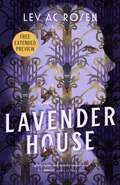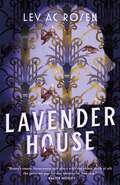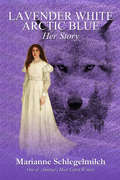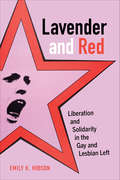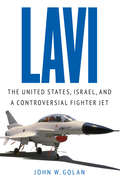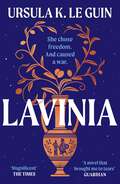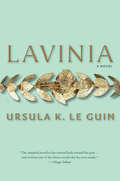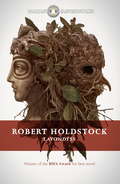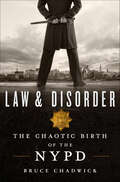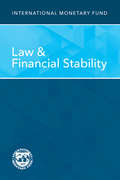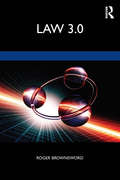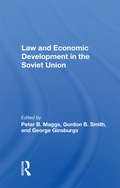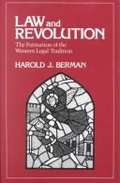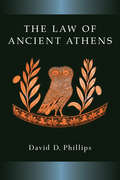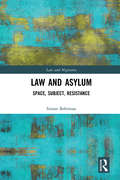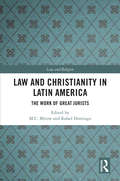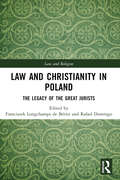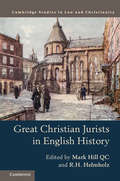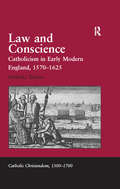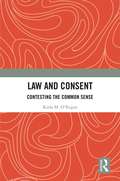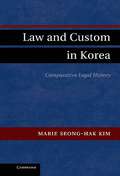- Table View
- List View
Lavender House Sneak Peek
by Lev AC RosenA delicious story from a new voice in suspense, Lev AC Rosen's Lavender House is Knives Out with a queer historical twist. Download a FREE sneak peek today!Lavender House, 1952: the family seat of recently deceased matriarch Irene Lamontaine, head of the famous Lamontaine soap empire. Irene’s recipes for her signature scents are a well guarded secret—but it's not the only one behind these gates. This estate offers a unique freedom, where none of the residents or staff hide who they are. But to keep their secret, they've needed to keep others out. And now they're worried they're keeping a murderer in.Irene’s widow hires Evander Mills to uncover the truth behind her mysterious death. Andy, recently fired from the San Francisco police after being caught in a raid on a gay bar, is happy to accept—his calendar is wide open. And his secret is the kind of secret the Lamontaines understand.Andy had never imagined a world like Lavender House. He's seduced by the safety and freedom found behind its gates, where a queer family lives honestly and openly. But that honesty doesn't extend to everything, and he quickly finds himself a pawn in a family game of old money, subterfuge, and jealousy—and Irene’s death is only the beginning.When your existence is a crime, everything you do is criminal, and the gates of Lavender House can’t lock out the real world forever. Running a soap empire can be a dirty business.At the Publisher's request, this title is being sold without Digital Rights Management Software (DRM) applied.
Lavender House: A Novel
by Lev AC RosenA "Best Of" Book From: Amazon * Buzzfeed * Rainbow Reading * Library Journal * CrimeReads * BookPage * Book Riot * AutostraddleA delicious story from a new voice in suspense, Lev AC Rosen's Lavender House is Knives Out with a queer historical twist.Lavender House, 1952: the family seat of recently deceased matriarch Irene Lamontaine, head of the famous Lamontaine soap empire. Irene’s recipes for her signature scents are a well guarded secret—but it's not the only one behind these gates. This estate offers a unique freedom, where none of the residents or staff hide who they are. But to keep their secret, they've needed to keep others out. And now they're worried they're keeping a murderer in. Irene’s widow hires Evander Mills to uncover the truth behind her mysterious death. Andy, recently fired from the San Francisco police after being caught in a raid on a gay bar, is happy to accept—his calendar is wide open. And his secret is the kind of secret the Lamontaines understand. Andy had never imagined a world like Lavender House. He's seduced by the safety and freedom found behind its gates, where a queer family lives honestly and openly. But that honesty doesn't extend to everything, and he quickly finds himself a pawn in a family game of old money, subterfuge, and jealousy—and Irene’s death is only the beginning. When your existence is a crime, everything you do is criminal, and the gates of Lavender House can’t lock out the real world forever. Running a soap empire can be a dirty business.At the Publisher's request, this title is being sold without Digital Rights Management Software (DRM) applied.
Lavender Road (Lavender Road Ser. #Vol. 1)
by Helen CareyWorld War II has begun. As war rages, and the evacuation of Dunkirk approaches, the women of south London have their own battles to fight. Helen Carey's LONDON ROAD is a compelling novel perfect for fans of Lilian Harry, Kate Thompson and Annie Murray. September 1939As the nation braces itself for war, the residents of Lavender Road are dealing with troubles of their own.With her husband in jail, Joyce Carter is never sure where her family's next meal will come from. And her troublesome daughter, Jen, isn't helping matters by refusing to work until she achieves her dream of becoming an actress.Pam Nelson is struggling to deny the distance growing between her and her husband - which isn't helped by her secret attraction to their handsome new lodger. And unfortunately Pam isn't the only one to fall for his seductive charm...As the threat of a German invasion looms, the lives of the women on this south London street are about to change for ever...
Lavender Road (Lavender Road Ser. #Vol. 1)
by Helen CareyWorld War II has begun. As war rages, and the evacuation of Dunkirk approaches, the women of south London have their own battles to fight. Helen Carey's LONDON ROAD is a compelling novel perfect for fans of Lilian Harry, Kate Thompson and Annie Murray. September 1939As the nation braces itself for war, the residents of Lavender Road are dealing with troubles of their own.With her husband in jail, Joyce Carter is never sure where her family's next meal will come from. And her troublesome daughter, Jen, isn't helping matters by refusing to work until she achieves her dream of becoming an actress.Pam Nelson is struggling to deny the distance growing between her and her husband - which isn't helped by her secret attraction to their handsome new lodger. And unfortunately Pam isn't the only one to fall for his seductive charm...As the threat of a German invasion looms, the lives of the women on this south London street are about to change for ever...
Lavender White Arctic Blue: Her Story
by Marianne SchlegelmilchDuring the waning days of the gold rush, Emma Brownston fled a cheating husband, and traded an affluent lifestyle in Britain for a bold venture into the Alaska frontier. But life in the fading Klondike city of Skagway soon proved to be far from her last adventure, as struggles with health issues and complex ties to Britain hampered her attempts to remove herself from her former life. With Britain fully immersed in the social uprisings of the Great Unrest, World War I looming on the horizon, and women in Europe and America organizing for the right to vote, would her newfound resolve be enough to help her navigate these tenuous times, or would she, like so many drawn to the gold rush, struggle to maintain momentum in the wilds of pre-territorial Alaska? Lavender White Arctic Blue is the fictional story of one woman's journey during the early days of the twentieth century. Beginning in Britain at Lavender Blue Estates in 1910, Emma Brownston's story will take the reader across two continents to a new home named Arctic White in Alaska and to an ending even the author did not foresee.
Lavender and Red: Liberation and Solidarity in the Gay and Lesbian Left
by Emily K. HobsonLGBT activism is often imagined as a self-contained struggle, inspired by but set apart from other social movements. Lavender and Red recounts a far different story: a history of queer radicals who understood their sexual liberation as intertwined with solidarity against imperialism, war, and racism. This politics was born in the late 1960s but survived well past Stonewall, propelling a gay and lesbian left that flourished through the end of the Cold War. The gay and lesbian left found its center in the San Francisco Bay Area, a place where sexual self-determination and revolutionary internationalism converged. Across the 1970s, its activists embraced socialist and women of color feminism and crafted queer opposition to militarism and the New Right. In the Reagan years, they challenged U.S. intervention in Central America, collaborated with their peers in Nicaragua, and mentored the first direct action against AIDS. Bringing together archival research, oral histories, and vibrant images, Emily K. Hobson rediscovers the radical queer past for a generation of activists today.
Lavi: The United States, Israel, and a Controversial Fighter Jet
by John W GolanThe Lavi fighter program, the largest weapons-development effort ever undertaken by the State of Israel, envisioned a new generation of high-performance aircraft. In a controversial strategy, Israel Aircraft Industries intended to develop and manufacture the fighters in Israel with American financial support. The sophisticated planes, developed in the mid-1980s, were unique in design and intended to make up the majority of the Israeli air force. Though considerable prestige and money were at stake, developmental costs increased and doubts arose as to whether the Lavi could indeed be the warplane it was meant to be. Eventually the program became a microcosm for the ambitions, fears, and internal divisions that shaped both the U.S.-Israeli relationship and Israeli society itself. But the fighter never made it to operational service, and until now, the full breadth and significance of the Lavi story have never been examined and presented. Lavi: The United States, Israel, and a Controversial Fighter Jet traces the evolution of the Lavi fighter from its genesis in the 1970s to its scrapping in August 1987. John W. Golan examines the roles of Israeli military icons and political leaders such as Ezer Weizman, Ariel Sharon, Menachem Begin, and Yitzhak Rabin in the program and in relation to their counterparts in the United States. On the American side, Golan traces the evolution of government policy toward the program, detailing the complex picture of the U.S. foreign policy apparatus and of U.S.-Israeli relations in general—from President Reagan’s public endorsement of the program on the White House lawn to Defense Secretary Caspar Weinberger’s unremitting attempts to cancel it in succeeding years.
Lavinia
by Ursula K. Le GuinAn exceptional combination of history and mythology - 'an intriguing, luxuriously realised novel' FINANCIAL TIMES'Subtly moving, playful...a novel that brought me to tears more than once. Lavinia is a delightful heroine' GUARDIAN'Like Spartan Helen, I caused a war. She caused hers by letting men who wanted her take her. I caused mine because I wouldn't be given, wouldn't be taken, but chose my man and my fate. The man was famous, the fate obscure; not a bad balance.'Lavinia is the daughter of the King of Latium, a victorious warrior who loves peace; she is her father's closest companion. Now of an age to wed, Lavinia's mother favours her own kinsman, King Turnus of Rutulia, handsome, heroic, everything a young girl should want. Instead, Lavinia dreams of mighty Aeneas, a man she has heard of only from a ghost of a poet, who comes to her in the gods' holy place and tells her of her future, and Aeneas' past...If she refuses to wed Turnus, Lavinia knows she will start a war - but her fate was set the moment the poet appeared to her in a dream and told her of the adventurer who fled fallen Troy, holding his son's hand and carrying his father on his back...
Lavinia
by Ursula K. Le GuinIn a richly imagined, beautiful new novel, an acclaimed writer gives an epic heroine her voice. In The Aeneid, Virgil’s hero fights to claim the king’s daughter, Lavinia, with whom he is destined to found an empire. Lavinia herself never speaks a word. Now, Ursula K. Le Guin gives Lavinia a voice in a novel that takes us to the half-wild world of ancient Italy, when Rome was a muddy village near seven hills. Lavinia grows up knowing nothing but peace and freedom, until suitors come. Her mother wants her to marry handsome, ambitious Turnus. But omens and prophecies spoken by the sacred springs say she must marry a foreigner-that she will be the cause of a bitter war-and that her husband will not live long. When a fleet of Trojan ships sails up the Tiber, Lavinia decides to take her destiny into her own hands. And so she tells us what Virgil did not: the story of her life, and of the love of her life. Lavinia is a book of passion and war, generous and austerely beautiful, from a writer working at the height of her powers.
Lavondyss
by Robert HoldstockAt the heart of the wildwood lies a place of mystery and legend, from which few return and none emerged unchanged: Lavondyss . . . the ultimate realm, the source of all myth.When Harry Keeton disappeared into Ryhope Wood, his sister Tallis was just an infant. Now, thirteen years old, she hears him whispering to her from the Otherworld. He is in danger. He needs her help. Using masks, magic and clues left by her grandfather, she finds a way to enter the primitive forest and begin her search. Eventually she comes to Lavondyss itself, a realm both beautiful and deadly, a place in which she is changed forever . . . Robert Holdstock's Mythago Wood won the World Fantasy Award and is among the most praised post-war novels of the fantastical. In this haunting sequel, Lavondyss, we are returned to the Wildwood and the mythos that Holdstock has made his own.Winner of the BSFA Award for best novel, 1989.
Law & Disorder: The Chaotic Birth of the NYPD
by Bruce ChadwickNineteenth-century New York City was one of the most magnificent cities in the world, but also one of the most deadly. Without any real law enforcement for almost 200 years, the city was a lawless place where the crime rate was triple what it is today and the murder rate was five or six times as high. The staggering amount of crime threatened to topple a city that was experiencing meteoric growth and striving to become one of the most spectacular in America. For the first time, award-winning historian Bruce Chadwick examines how rampant violence led to the founding of the first professional police force in New York City. Chadwick brings readers into the bloody and violent city, where race relations and an influx of immigrants boiled over into riots, street gangs roved through town with abandon, and thousands of bars, prostitutes, and gambling emporiums clogged the streets. The drive to establish law and order and protect the city involved some of New York’s biggest personalities, including mayor Fernando Wood, police chief Fred Tallmadge, and journalist Walt Whitman. Law and Disorder is a must read for fans of New York history and those interested in how the first police force, untrained and untested, battled to maintain law and order.
Law & Financial Stability: Restoring Financial Stability--the Legal Response (Seminar Volumes Ser. #6)
by International Monetary FundA report from the International Monetary Fund.
Law 3.0: Rules, Regulation, and Technology
by Roger BrownswordPutting technology front and centre in our thinking about law, this book introduces Law 3.0: the future of the legal landscape. Technology not only disrupts the traditional idea of what it is ‘to think like a lawyer,’ as per Law 1.0; it presents major challenges to regulators who are reasoning in a Law 2.0 mode. As this book demonstrates, the latest developments in technology offer regulators the possibility of employing a technical fix rather than just relying on rules – thus, we are introducing Law 3.0. Law 3.0 represents, so to speak, the state we are in and the conversation that we now need to have, and this book identifies some of the key points for discussion in that conversation. Thinking like a lawyer might continue to be associated with Law 1.0, but from 2020 onward, Law 3.0 is the conversation that we all need to join. And, as this book argues, law and the evolution of legal reasoning cannot be adequately understood unless we grasp the significance of technology in shaping both legal doctrine and our regulatory thinking. This is a book for those studying, or about to study, law – as well as others with interests in the legal, political, and social impact of technology.
Law And Economic Development In The Soviet Union
by Peter B. Maggs George Ginsburgs Gordon B. SmithIn the past, Soviet policymakers, planners, and jurists, in their enthusiasm for economic and technological development, devoted little attention to the often negative consequences of modernization. New concerns, however, have become apparent in recent literature, statutes, and decrees. In this book, political scientists and experts on Soviet law address many of those concerns, analyzing the legal issues associated with economic modernization in the USSR. The central themes of the book are the increasingly centralized nature of the policymaking process in the USSR and Eastern Europe and the marked tendency to rely on law as a principal mechanism for managing the undesirable consequences of scientific and technological progress. The authors also assess the impact of the scientific-technical revolution on Soviet-East European relations and East-West relations, emphasizing the foreign policy consequences of increased financial and technological interdependence. The study does not deal with narrow legalistic issues of technical progress; rather, its focus on policy questions reflects the inclination of Soviet and Eastern European governments to view those questions in terms of law and legislative activity and to see law as an instrument of social engineering.
Law And Revolution: The Formation Of The Western Legal Tradition
by Harold BermanThe roots of modern Western legal institutions and concepts go back nine centuries to the Papal Revolution, when the Western church established its political and legal unity and its independence from emperors, kings, and feudal lords. Out of this upheaval came the Western idea of integrated legal systems consciously developed over generations and centuries. Harold J. Berman describes the main features of these systems of law, including the canon law of the church, the royal law of the major kingdoms, the urban law of the newly emerging cities, feudal law, manorial law, and mercantile law. In the coexistence and competition of these systems he finds an important source of the Western belief in the supremacy of law. Written simply and dramatically, carrying a wealth of detail for the scholar but also a fascinating story for the layman, the book grapples with wideranging questions of our heritage and our future. One of its main themes is the interaction between the Western belief in legal evolution and the periodic outbreak of apocalyptic revolutionary upheavals. Berman challenges conventional nationalist approaches to legal history, which have neglected the common foundations of all Western legal systems. He also questions conventional social theory, which has paid insufficient attention to the origin of modem Western legal systems and has therefore misjudged the nature of the crisis of the legal tradition in the twentieth century.
Law And Society In The Ancient World: Law Of Ancient Athens
by David PhillipsThe Law of Ancient Athens contains the principal literary and epigraphical sources, in English, for Athenian law in the Archaic and Classical periods, from the first known historical trial (late seventh century) to the fall of the democracy in 322 BCE. This accessible and important volume is designed for teachers, students, and general readers interested in the ancient Greek world, the history of law, and the history of democracy, an Athenian invention during this period. Offering a comprehensive treatment of Athenian law, it assumes no prior knowledge of the subject and is organized in user-friendly fashion, progressing from the person to the family to property and obligations to the gods and to the state. David D. Phillips has translated all sources into English, and he has added significant introductory and explanatory material. Topics covered in the book include homicide and wounding; theft; marriage, children, and inheritance; citizenship; contracts and commerce; impiety; treason and other offenses against the state; and sexual offenses including rape and prostitution. The volume’s unique feature is its presentation of the actual primary sources for Athenian laws, with many key or disputed terms rendered in transliterated Greek. The translated sources, together with the topical introductions, notes, and references, will facilitate both research in the field and the teaching of increasingly popular courses on Athenian law and law in the ancient world.
Law and Asylum: Space, Subject, Resistance (Law and Migration)
by Simon BehrmanIn contrast to the claim that refugee law has been a key in guaranteeing a space of protection for refugees, this book argues that law has been instrumental in eliminating spaces of protection, not just from one’s persecutors but also from the grasp of sovereign power. By uncovering certain fundamental aspects of asylum as practised in the past and in present day social movements, namely its concern with defining space rather than people and its role as a space of resistance or otherness to sovereign law, this book demonstrates that asylum has historically been antagonistic to law and vice versa. In contrast, twentieth-century refugee law was constructed precisely to ensure the effective management and control over the movements of forced migrants. To illustrate the complex ways in which these two paradigms – asylum and refugee law – interact with one another, this book examines their historical development and concludes with in-depth studies of the Sanctuary Movement in the United States and the Sans-Papiers of France. The book will appeal to researchers and students of refugee law and refugee studies; legal and political philosophy; ancient, medieval and modern legal history; and sociology of political movements.
Law and Authority in British Legal History, 1200–1900
by Mark GodfreyBy presenting original research into British legal history, this volume emphasises the historical shaping of the law by ideas of authority. The essays offer perspectives upon the way that ideas of authority underpinned the conceptualisation and interpretation of legal sources over time and became embedded in legal institutions. The contributors explore the basis of the authority of particular sources of law, such as legislation or court judgments, and highlight how this was affected by shifting ideas relating to concepts of sovereignty, religion, political legitimacy, the nature of law, equity and judicial interpretation. The analysis also encompasses ideas of authority which influenced the development of courts, remedies and jurisdictions, international aspects of legal authority when questions of foreign law or jurisdiction arose in British courts, the wider authority of systems of legal ideas such as natural law, the authority of legal treatises, and the relationship between history, law and legal thought.
Law and Authority in the Early Middle Ages
by Thomas FaulknerThe barbarian law codes, compiled between the sixth and eighth centuries, were copied remarkably frequently in the Carolingian ninth century. They provide crucial evidence for early medieval society, including the settlement of disputes, the nature of political authority, literacy, and the construction of ethnic identities. Yet it has proved extremely difficult to establish why the codes were copied in the ninth century, how they were read, and how their rich evidence should be used. Thomas Faulkner tackles these questions more systematically than ever before, proposing new understandings of the relationship between the making of law and royal power, and the reading of law and the maintenance of ethnic identities. Faulkner suggests major reinterpretations of central texts, including the Carolingian law codes, the capitularies adding to the laws, and Carolingian revisions of earlier barbarian and Roman laws. He also provides detailed analysis of legal manuscripts, especially those associated with the leges-scriptorium.
Law and Christianity in Latin America: The Work of Great Jurists (Law and Religion)
by M.C. Mirow and Rafael DomingoThis volume examines the lives of more than thirty-five key personalities in Latin American law with a focus on how their Christian faith was a factor in molding the evolution of law in their countries and the region. The book is a significant contribution to our ability to understand the work and perspectives of jurists and their effect on legal development in Latin America. The individuals selected for study exhibit wide-ranging areas of expertise from private law and codification, through national public law and constitutional law, to international developments that left their mark on the region and the world. The chapters discuss the jurists within their historical, intellectual, and political context. The editors selected jurists after extensive consultation with legal historians in various countries of the region looking at the jurist’s particular merits, contributions to law in general, religious perspective, and importance within the specific country and period under consideration. Giving the work a diversity of international and methodological perspectives, the chapters have been written by distinguished legal scholars and historians from Latin America and around the world. The collection will appeal to scholars, lawyers, and students interested in the interplay between law and religion. Political, social, legal, and religious historians among other readers will find, for the first time in English, authoritative treatments of the region’s essential legal thinkers and authors. Students and other who may not read Spanish will appreciate these clear, accessible, and engaging English studies of the region’s great jurists.
Law and Christianity in Poland: The Legacy of the Great Jurists (Law and Religion)
by Rafael Domingo Franciszek Longchamps de BérierThis volume is the first comprehensive study of the Polish history of law and Christianity written in English for a global audience. It examines the lives of twenty-one central figures in Polish law with a focus on how their Christian faith was a factor in molding the evolution of law in their country and the region. The individuals selected for study exhibit wide-ranging areas of expertise, from private law and codification, through national public law and constitutional law, to international developments that left their mark on Poland and the world. The chapters discuss the jurists within their historical, intellectual, and political context. The editors selected jurists after extensive consultation with legal historians looking at the jurists’ particular merits, contributions to law in general, religious perspective, and period under consideration. The collection will appeal to scholars, lawyers, and students interested in the interplay between law and religion. Political, social, legal, and religious historians, among other readers, will find, for the first time in English, authoritative treatments of essential Polish legal thinkers and authors.
Law and Christianity: Great Christian Jurists in English History (Law and Christianity)
by Mark Hill Helmholz R. h.The Great Christian Jurists series comprises a library of national volumes of detailed biographies of leading jurists, judges and practitioners, assessing the impact of their Christian faith on the professional output of the individuals studied. Little has previously been written about the faith of the great judges who framed and developed the English common law over centuries, but this unique volume explores how their beliefs were reflected in their judicial functions. This comparative study, embracing ten centuries of English law, draws some remarkable conclusions as to how Christianity shaped the views of lawyers and judges. Adopting a long historical perspective, this volume also explores the lives of judges whose practice in or conception of law helped to shape the Church, its law or the articulation of its doctrine.
Law and Conscience: Catholicism in Early Modern England, 1570–1625 (Catholic Christendom, 1300-1700)
by Stefania TutinoThis book examines the Catholic elaboration on the relationship between state and Church in late Elizabethan and Jacobean England. Among the several factors which have contributed to the complex process of state-formation in early modern Europe, religious affiliation has certainly been one of the most important, if not the most important. Within the European context of the consolidation of both the nation-state entities and the state-Churches, Catholicism in England in the 16th and 17th centuries presents peculiar elements which are crucial to understanding the problems at stake, from both a political and a religious point of view. Catholics in early modern England were certainly a minority, but a minority of an interestingly doubled kind. On the one hand, they were a "sect" among many others. On the other hand, Catholicism was a "universal", catholic religion, in a country in which the sovereign was the head - or governor - of both political and ecclesiastical establishments. In this context, this monograph casts light on the mechanisms through which a distinctive religious minority was able to adapt itself within a singular political context. In the most general terms, this book contributes to the significant question of how different religious affiliations could (or might) be integrated within one national reality, and how political allegiance and religious belief began to be perceived as two different identities within one context. Current scholarship on the religious history of early modern England has considerably changed the way in which historians think about English Protestantism. Recent works have offered a more nuanced and accurate picture of the English Protestant Church, which is now seen not as a monolithic institution, but rather as complex and fluid. This book seeks to offer certain elements of a complementary view of the English Catholic Church as an organism within which the debate over how to combine the catholic feature of the Church of Ro
Law and Consent: Contesting the Common Sense
by Karla M. O'ReganConsent is used in many different social and legal contexts with the pervasive understanding that it is, and has always been, about autonomy – but has it? Beginning with an overview of consent’s role in law today, this book investigates the doctrine’s inseparable association with personal autonomy and its effect in producing both idealised and demonised forms of personhood and agency. This prompts a search for alternative understandings of consent. Through an exploration of sexual offences in Antiquity, medical practice in the Middle Ages, and the regulation of bodily harm on the present-day sports field, this book demonstrates that, in contrast to its common sense story of autonomy, consent more often operates as an act of submission than as a form of personal freedom or agency. The book explores the implications of this counter-narrative for the law’s contemporary uses of consent, arguing that the kind of freedom consent is meant to enact might be foreclosed by the very frame in which we think about autonomy itself. This book will be of interest to scholars of many aspects of law, history, and feminism as well as students of criminal law, bioethics, and political theory.
Law and Custom in Korea
by Marie Seong-Hak KimThis book sets forth the evolution of Korea's law and legal system from the Chosǒn dynasty through the colonial and postcolonial modern periods. This is the first book in English that comprehensively studies Korean legal history in comparison with European legal history, with particular emphasis on customary law. Korea's passage to Romano-German civil law under Japanese rule marked a drastic departure from its indigenous legal tradition. The transplantation of modern civil law in Korea was facilitated by Japanese colonial jurists who themselves created a Korean customary law; this constructed customary law served as an intermediary regime between tradition and the demands of modern law. The transformation of Korean law by the brisk forces of Westernization points to new interpretations of colonial history and it presents an intriguing case for investigating the spread of law on the global level. In-depth discussions of French customary law and Japanese legal history in this book provide a solid conceptual framework suitable for comparing European and East Asian legal traditions.
